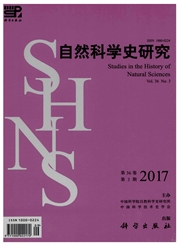

 中文摘要:
中文摘要:
在分析、比较欧拉和拉格朗日完全积分定义的基础上,依据原始文献,重点考究了拉格朗日重新定义偏微分方程完全积分的原因和动机。从微观角度看,拉格朗日基于欧拉的定义,在用“常数变易法”探讨一阶偏微分方程积分的过程中受到启发,萌生了其积分“完全性”的新思想,并把这种新思想运用于常微分方程的研究,成功解释了奇解,在此基础上提出了一阶偏微分方程完全积分的新定义,因此拉格朗日完全积分的新定义是“常数变易法”和微分方程奇解现象共同诱发的产物。从宏观角度看,拉格朗日完全积分的新定义是追求方程一般性解法的集中体现。
 英文摘要:
英文摘要:
Euler and Lagrange gave different definitions for the concept of the complete integral respectively in 1770 and 1774. As the foundation of his first-order partial differential equation theory, Lagrange' s definition plays an important role in his general integral theory. Based on a delicate comparison and analysis between the two definitions, the reasons why Lagrange redefined the complete integral of a first-order partial differential equation are revealed. On the one hand, Lagrange hit upon the new idea to redefine the complete integral when he was inspired by his study on the first-order partial differential equation with the method of variation of constants. While he used this new idea to research the ordinary differential equation, he explained the singular integral successfully. Inspired by his method, Lagrange formally put forward his new concept of the complete integral. On the other hand, his new definition showed his spirit of pursuing the general solution of the partial differential equation.
 同期刊论文项目
同期刊论文项目
 同项目期刊论文
同项目期刊论文
 期刊信息
期刊信息
